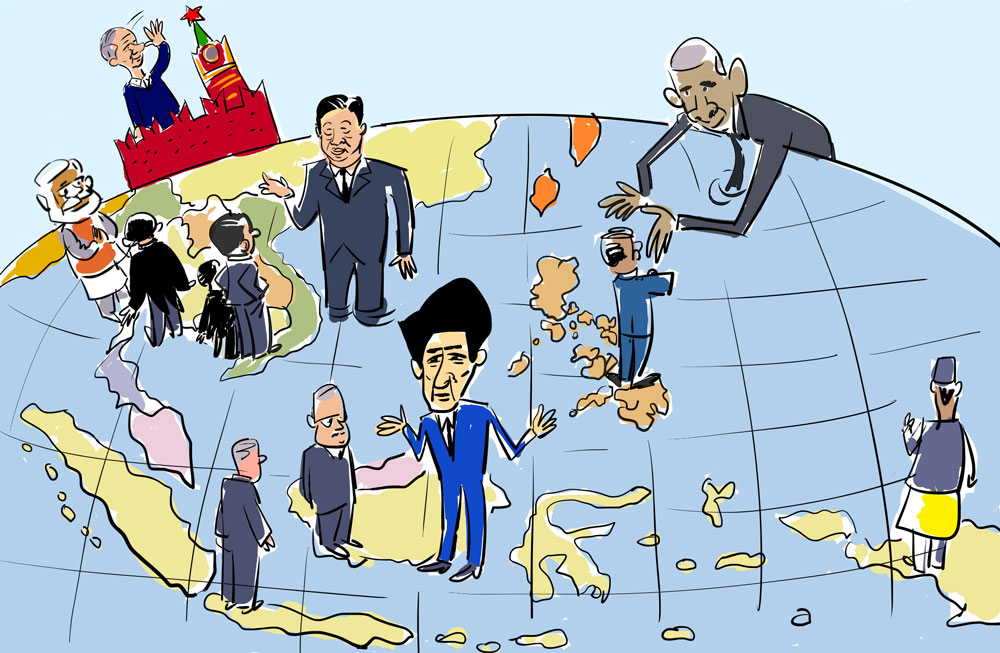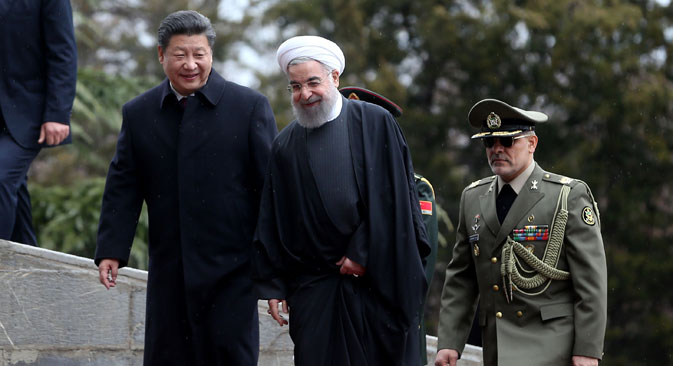Russia-ASEAN relationship needs more substance

The Kremlin seems to be distant from ASEAN leaders. Drawing by Iorsh
ASEAN’s overall ties with the U.S., China, Japan and India have been stronger and healthier because their leaders pushed hard and boosted mutual cooperation in bringing about tangible outcomes. It was no fluke. In the past few years, they have personally engaged with the ASEAN leaders to move forward their friendship. Last month, U.S. President Barack Obama hosted a special summit in California and further deepened cooperation with ASEAN. As a reward, the ASEAN leaders agreed to sign up to the Sunnylands Declaration, which contained 17 principles - a good testimony of new confidence of shared visions and commitments between US and the association.
In a similar vein, both Chinese President Xi Jinping and Premier Li Keqiang have travelled throughout the region with specific joint programs and activities for ASEAN and individual members. Their far-reaching infrastructural projects and region-wide connectivity are limited in number so far. These days, China moves quickly to implement whatever it has committed at a speed that ASEAN has to catch up. When ASEAN-China leaders meet for the 19th time in early September in Vientiane to commemorate their 25th anniversary, there will be more surprises on the offing.
In the case of Japan, under the leadership of Prime Minister Shinzo Abe, ASEAN-Japan ties have been on Shinkansen-like speeds. Their cooperation was strengthened widely, reflecting Tokyo's priority and the grouping's growing strategic significance. Abe travelled and consulted with the ASEAN leaders as never before. The ASEAN leaders responded in kind, adding new dimension to their otherwise heavily economic-oriented agenda.
Even India has pumped up its multi-faceted cooperation with Asean. Indian Prime Minister Narendra Modi wants more ASEAN investment and trade. Of late, New Delhi is softer and more willing to give and take in the negotiation of a Regional Comprehensive Economic Partnership, which is the ASEAN-led regional free trade framework. Modi is also pushing the bureaucrats and private sectors to "Act East" rather than just "Look East" as advocated by the previous government.In the case of Japan, under the leadership of Prime Minister Shinzo Abe, ASEAN-Japan ties have been on Shinkansen-like speeds. Their cooperation was strengthened widely, reflecting Tokyo's priority and the grouping's growing strategic significance. Abe travelled and consulted with the ASEAN leaders as never before. The ASEAN leaders responded in kind, adding new dimension to their otherwise heavily economic-oriented agenda.
Both Australia and New Zealand have impressive records in dealing withASEAN. They are medium-size powers but with dynamic cooperative programs. They enjoy working with ASEAN at all levels. New Zealand was given strategic partnership status at the same time as the US last November. Among the core dialogue partners, Russia is still not a strategic partner of ASEAN.
Looking ahead to the upcoming Sochi summit, Russian President Vladimir Putin has personally fired up the tepid relations. He has already written a letter of invitation to the ASEAN leaders to come to Sochi. This time Putin wants to make sure the 10 leaders are there so he can exchange views with them for the first time. So far, Putin, even on his third-term presidency, has never met with all ASEAN leaders or attended any ASEAN-led mechanisms.
The article is abridged. Read the full verision at ASIA.RBTH.ru.
All rights reserved by Rossiyskaya Gazeta.
Subscribe
to our newsletter!
Get the week's best stories straight to your inbox
